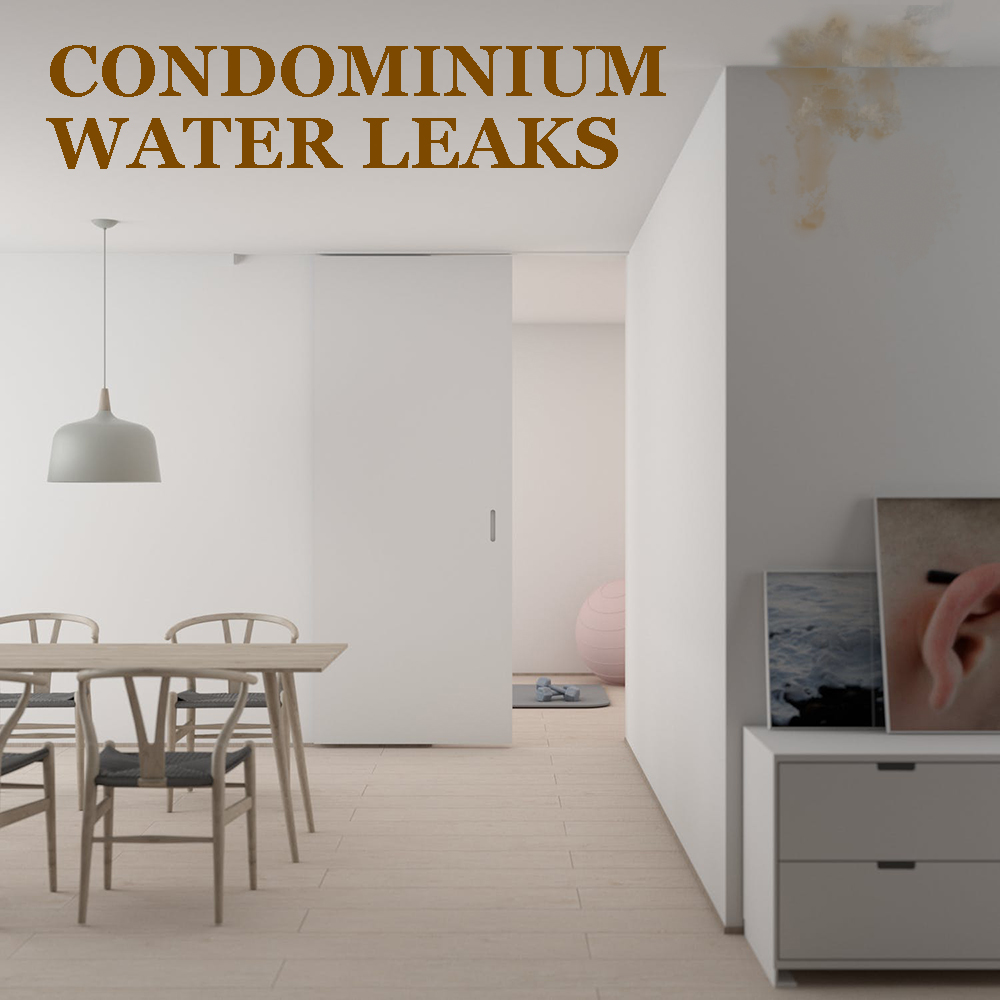My Unit is Flooded From a Neighbor’s Condo! Who Pays for a Condominium Leak or Dry-Outs Afterwards?
Reading Time: 4 minutes
It’s not unusual for condominium owners to experience leaks that don’t come for their own unit. Being surrounded by other people’s unit above, below, and on the sides, makes leaks inevitable from a neighbor’s condo. When you add in owners who may only live in the unit part time, and other units that may be completely unoccupied, the risk of a leak only goes up. Despite leaks being a fairly common occurrence, many unit owners do not know who will be responsible for the various repairs and remediation that are required after a condominium leak.
What Does The Condo Act Say About A Condominium Leak?
A unit owner should first know that pursuant to Florida Statute § 718.111(11)(f), their condo association is responsible for everything but the following list of items, which are the unit owner’s responsibility:
personal property within the unit or limited common elements, and floor, wall, and ceiling coverings, electrical fixtures, appliances, water heaters, water filters, built-in cabinets and countertops, and window treatments, including curtains, drapes, blinds, hardware, and similar window treatment components, or replacements of any of the foregoing which are located within the boundaries of the unit and serve only such unit. Basically, the drywall and anything behind it is the association’s responsibility; everything from the drywall finish out into the unit is the owner’s responsibility. The unit owner is also responsible for his or appliances, furniture, and cabinets and other fixtures.
But who is financially responsible? That will depend on whether or not the cause of the damage is, to use the Condo Act’s term, an “insurable event.” While the Act does not define what constitutes an “insurable event”, it is understood to mean an insured peril (as that term is used in many commercial insurance policies) or a casualty. A casualty itself is interpreted as being something unusual, unexpected, and sudden.
Leaking From A Neighbor’s Condo
Where a neighbor’s condo is the source of the leak, and the specific cause of the leak was not foreseeable, such as a burst water heater, the association will be responsible for damaged ceilings and/or walls, as well as infrastructure such as damaged wiring behind the walls, and resultant mold growth. Any resulting interior damage is the unit owner’s responsibility as outlined under § 718.111(11). But, the owner’s condo unit insurance policy should cover all damage not covered by the association’s policy.
If the damage results from the other owner failing to maintain or timely fix a foreseeable, known issue, then different rules apply. Say, for example, that an upstairs unit owner leaves the country for an extended period of time, but leaves his faucet running accidentally, which results in flooding, water intrusion, and damage to downstairs units. Per Florida Statute § 718.111(11)(j)(1), the offending upstairs unit owner would be liable for the damage to all portions of the condominium property not covered by the condominium’s insurance policy. The statute also holds the upstairs unit owner liable for the damage to the neighbor’s condo downstairs. The same rules would hold true if the source of the leak is a unit owner’s intentional conduct, or the result of the unit owner’s failure to follow the dictates of the condominium documents, including its rules and regulations.
Dry-Outs
There is some ambiguity in the Condo Act regarding who is liable for dry-outs after major leaks and water damage, which can be a substantial expense. While both parties, the association and the individual owner of the unit, have an interest in protecting their property, each side may resist, given the cost. In such situations, and where neither party’s insurer will cover the cost, the association should assume the cost. The association has a vested interest in ensuring that standing water and water seepage do not damage the structural portions of the condominium property, or any infrastructure, such as wiring. It isn’t worth the cost of drying out a unit to jeopardize critical elements of the condominium.
To learn more about the topic of condominium association repair responsibilities, read this additional article:


